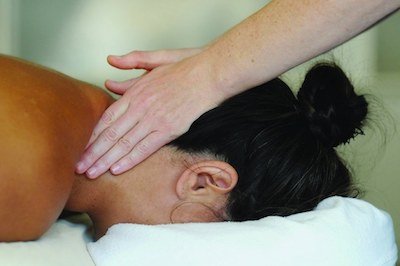By Ray Siderius, Director
In the 1960’s Thomas Hanna, a philosophy professor and Feldenkrais trainer, started using the term “somatics” in a unique way. Commonly used to mean physical, or “related to the body,” Hanna used the term to refer to “the field which studies the soma: namely, the body, as perceived from within by first-person perception.”* A variety of practices are now considered members of the “Somatics” field: Alexander Technique, Authentic Movement, various body psychotherapies, various forms of massage, Continuum, Feldenkrais, Hanna Somatic Education, Lomi, Rosen Method, and Sensory Awareness…to name a few.
(A more extensive list of somatic practices, with clear descriptions, can be found in Discovering The Body’s Wisdom, by Mirka Knaster.)
To the client experiencing them, these practices may appear quite different from each other…and seem to be based on quite varied concepts. What they all have in common is that principle of learning by experiencing the body from within. Don Hanlon Johnson, author of several books on somatics, writes, “Bodily experience, in the eyes of those practical teachers, is the most basic place to look when trying to resolve human ills, whether disease, emotional unrest, or spiritual malaise.”*
Massage training programs vary a great deal in the degree to which they, in the sense we are using the term, are “somatic.” Some teach massage and the related health sciences (e.g., anatomy and physiology) as information and technique to be learned and practiced without intending to engage the learner’s inner experience. Oregon School of Massage (OSM) has throughout it’s history included the “somatic” approach to teaching and practicing massage. Theory, scientific study, the wisdom of experience and personal awareness are interwoven in the curriculum. This is another way of saying “integration of mind, body and spirit” is foundational to our program.
*Both of these quotes are from Johnson’s, Groundworks, Narratives of Embodiment.





Interesting post. It seems there are a lot of modalities considered somatic, while maybe not bodywork per se would Hakomi fall into that category?
http://www.oregonschoolofmassage.com/professionals/ce-descriptions/#110
Thanks
Hi Jason, Yes, I think of Hakomi, and the other body psychotherapies like Reichian and Core Energetics, as being somatic modalities. Ray Siderius
Great introduction to what the broad term somatic includes. The description “the principle of learning while experiencing the body from within” explains the learner centered approach utilized by instructors at OSM. Learning and understanding massage is truly a “whole body” experience.